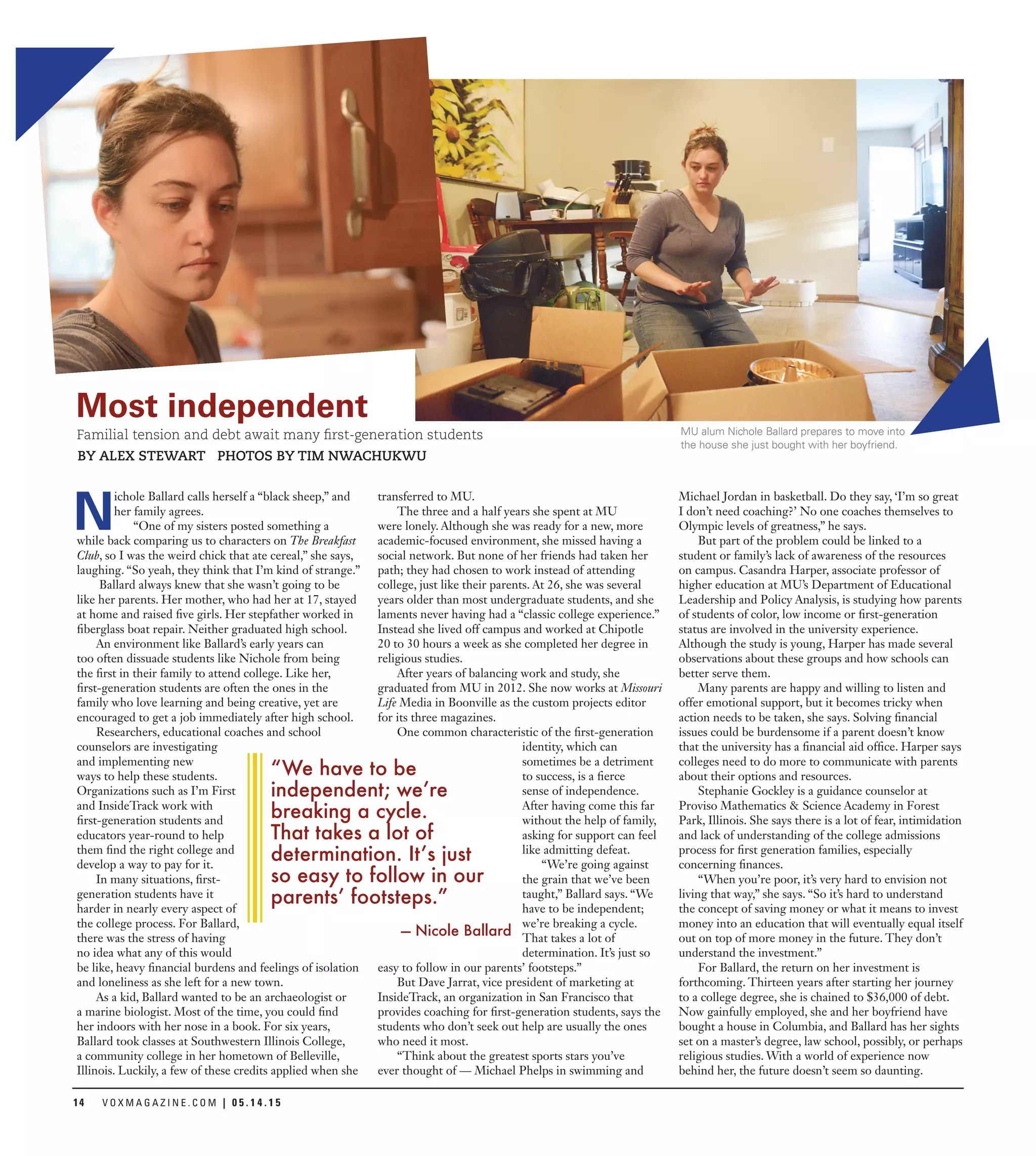Nichole Ballard was a first-generation college student who felt like the "black sheep" of her family. She faced many challenges in pursuing her degree that others in her family did not, such as a lack of financial resources or understanding of the college process from her parents. After years of balancing work and school, she graduated with religious studies degree but had accrued $36,000 in debt. While the process was lonely and difficult, Ballard now has a job she enjoys and has bought a house, showing that obtaining a college degree can help first-generation students break out of the cycle set by their parents.
